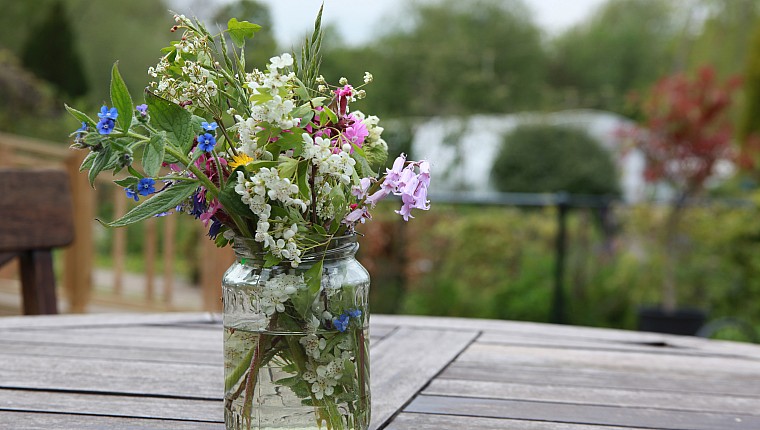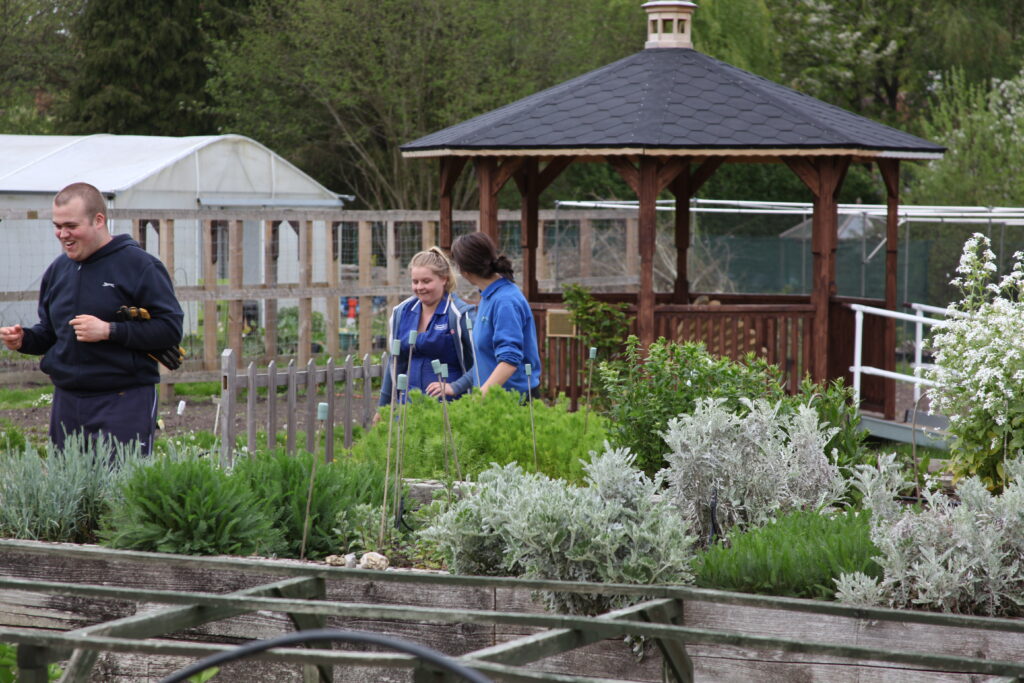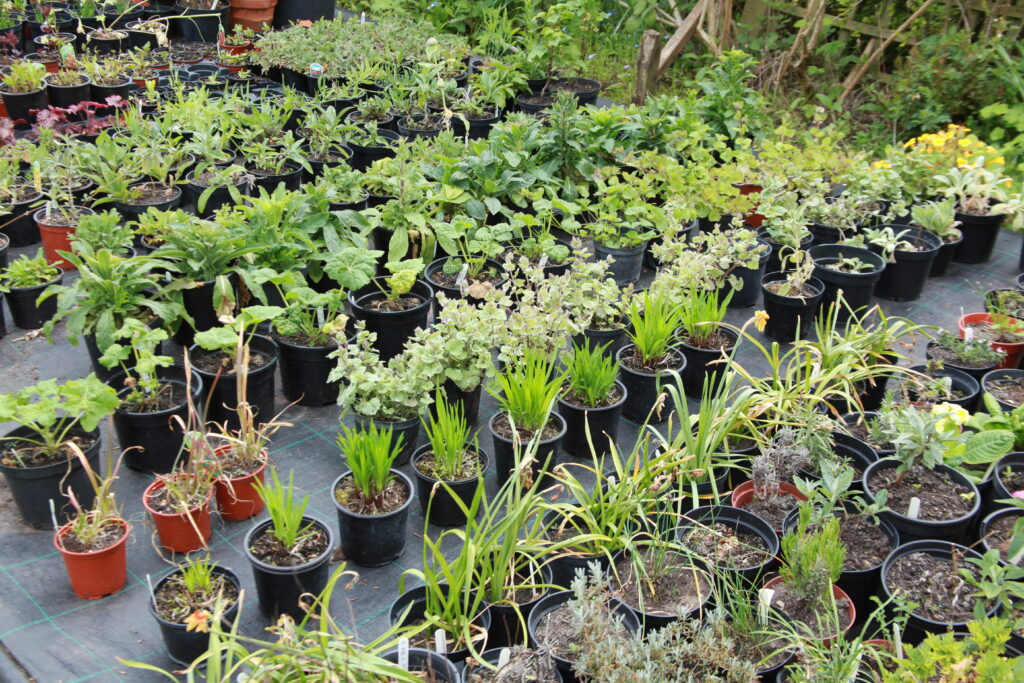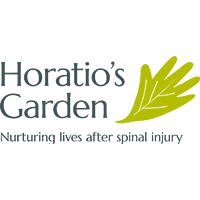Garden therapy in action

Tucked away behind the village medical centre in a Surrey village is a haven of positivity and growth. The Therapy Garden, which opens for the National Garden Scheme in May and September, is a horticulture and education charity that uses gardening to generate positive change. And, stepping through the wrought iron gateway with its archway of quirky iron vegetables, that positivity hits you immediately.
A herb edged path leads you to reception with its living wall and a stylish auricula theatre and beyond, across the two acre site, there is a hive of activity among the beds and in the poly tunnels as volunteers and clients tend the garden accompanied by the buzz of bees and the chatter of birds.
Working with adults and teenagers with learning difficulties, physical disabilities and mental health challenges, the team also offer school-age teenagers interventional education opportunities.
“The transformative effects of the garden are great to watch,” says horticulturist Emma. “One student from a special educational needs school arrived literally hidden in his hoodie, unimpressed by the thought of gardening and unwilling to even put on his work boots or gloves. But, over the space of a year, something completely changed. Now he’s the first one through the gate in the mornings, the first one to have his gloves on and the first to be in the garden enjoying the work.”
For students excluded from mainstream education there’s a City and Guilds qualification in Horticulture that helps provide a stepping stone, learning new skills to get them ready for the workplace.
Other clients are referred from the local community via the medical centre, the police, social services, schools and other health-related charities and come under what NHS England is calling ‘social prescribing’ – a scheme of community based support aimed at linking an individual with an activity to improve their wellbeing. Although social prescribing feels like a new concept it’s formed an important part of health care services for years. It wasn’t until 2015, however, that the NHS recognised the importance of this community based support and began to champion it. By April 2021 NHS England plans to fund one link worker for every primary care network in the country.
“Link workers are a great idea,” says Natalie Claveria at the Therapy Garden. “By working as an introducer to services like ours they will really help potential clients and volunteers take that first step through the garden gate.”
That first step is always hard but none of the clients at the garden on the day we visited regrets it for a moment.
“I never feel tired at the end of the day,” says George, a young adult client who visits regularly. “Watering, planting, weeding, potting, I enjoy all the activities. It makes me feel happy.”
Penny, who enjoyed a long career in horticulture but who now suffers from Lupus, had the Therapy Garden recommended to her by the local job centre, and now spends her time in the poly tunnels helping others to pot up and plant and keeping her green fingers busy. “It makes me feel beneficial; satisfied more than happy, and useful,” she says. “It keeps my hand in. There is nothing more satisfying then digging up potatoes and carrots, there’s something primitive about digging around in the soil for food. It connects you to the earth.”
This powerful sense of connection manifests itself in a variety of ways for everyone involved at the garden.
Sue, who has volunteered at the Therapy Garden for two years adds: “People seem calmer, their anxiety drops, they always seem to have a smile on their face when they are here. For our dementia clients, they seem to enjoy being outside and there are benefits for their partners too, a break from the 24/7 care and the chance to interact and socialise with others in the same situation.”
For Paul, who lives with dementia, and his wife and carer Sheila, their monthly visit to the Therapy Garden, recommended by their occupational therapist, provides a welcome break from the routine of home.
“Chatting to people who are carers like me is lovely, because dementia can be so isolating. I feel at home here,” says Sheila. “I would thoroughly recommend it – everyone is so kind. It’s so peaceful away from the outside world.”
Keen gardeners – Paul sometimes spends five hours a day outdoors – they also visit other local National Garden Scheme gardens for inspiration and fresh air.
Summing up the benefits of this safe-haven, Emma says: “A lot of our clients and volunteers come because they enjoy team activities or because being in the garden is such a peaceful place to be. They get a sense of achievement working on an area, planting it and coming back to see it develop and grow and seeing an end result. For many it really boosts their self confidence and self-esteem.”
And for those not sure about taking that first step through the garden gate Emma recommends spending time outside, seeing what you have growing either in your own garden or around you. “Pick things, smell things, bring the outside in and watch your love of gardening grow.”
To find out when The Therapy Garden is next open for the National Garden Scheme click here.
To find out more about the work of The Therapy Garden go to: www.thetherapygarden.org




















